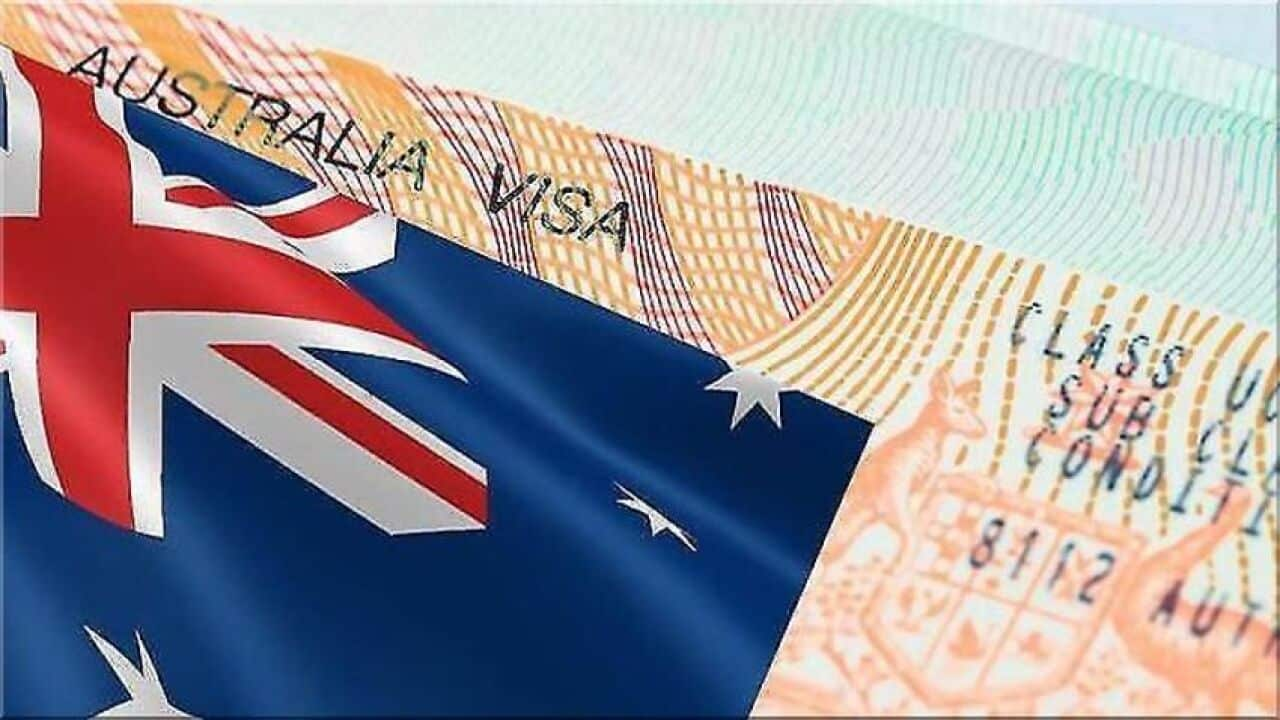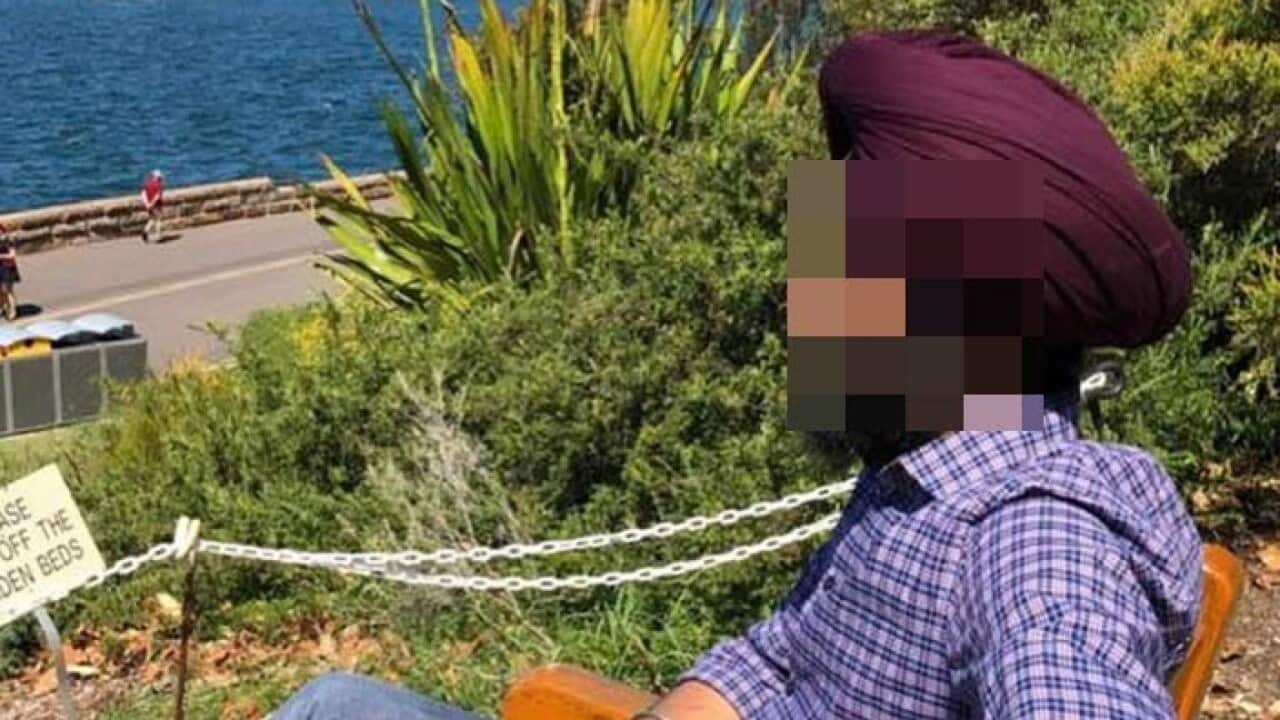Highlights
- Offshore partner visa applicants to face "significantly longer" waiting period
- Applicants may face up to two years or more in the wake of COVID-19 outbreak
- New applicants of the offshore partner visa subclass may be "worst-affected"
Australians married to someone who is not an Australian resident will have to wait longer to be with their spouses or de facto partners, claims Melbourne-based migration agent, Jujhar Bajwa.
Speaking to SBS Punjabi, he says offshore partner visa applicants whose visas are under process are already feeling the pinch. But it would, however, be the cohort of new applicants who have either lodged an application in the last three months or are planning to file one in the next few months who would be “worst-affected”.
“We are already witnessing a drop in the number of partner visa grants since January, a clear indicator that processing times for visa subclass 309 (Partner Provisional visa) have increased.
“The average processing time for a 309 application is anywhere between 10 to 12 months from the time of lodgement, but now that period has suddenly spiked,” says Mr Bajwa. Outlining the reasons behind these delays, Mr Bajwa says most of these can be attributed to lockdowns put in place in several countries, including India, which has lead to the closure of many visa-related services.
Outlining the reasons behind these delays, Mr Bajwa says most of these can be attributed to lockdowns put in place in several countries, including India, which has lead to the closure of many visa-related services.

Partner visa applicants may have to wait longer for a decision on their applications, claim migration agents. Source: Getty Images
"Applicants are struggling to get their police clearances and appointments for health examinations due to coronavirus restrictions. Also, we need to remember that even case processing officers are humans and might be impacted by the restrictions like most of us."
He adds that if the coronavirus outbreak took longer than a few months to subside, "there’s a real possibility that the average processing time for an offshore partner visa could climb well beyond two years."
“At least 75 to 80% of applicants will be impacted if the crisis went on for a few more months. And this would most likely also mean applicants will face significantly more scrutiny in the coming days,” adds Mr Bajwa. In an interview with , Acting Immigration Minister Alan Tudge on Monday acknowledged the “difficulty” some couples might be facing owing to the closure of borders.
In an interview with , Acting Immigration Minister Alan Tudge on Monday acknowledged the “difficulty” some couples might be facing owing to the closure of borders.

Acting Immigration Minister Alan Tudge Source: AAP
“We are only taking people in obviously if they are Australian citizens or permanent residents, they can come and self-isolate and a select group of other people on a case by case basis.
“But there isn’t a general rule that people who are trying to get their partners in on as partner visas will automatically be able to just come into the country and that’s just an unfortunate by-product of the circumstances that we are in at the moment,” said Mr Tudge.
He added that processing times for other visa classes may also be impacted.
“Some of the processing additionally have slowed down overseas of these applications. Not (just) partner visa and there are other applications.
“In part because we can’t get the medical tests done because those medical facilities may have closed down or they can’t get the English language tests done because some of those may have been closed down,” said Mr Tudge. Offshore partner visa applicants have the option to come to Australia on a visitor visa before their partner visa application is decided.
Offshore partner visa applicants have the option to come to Australia on a visitor visa before their partner visa application is decided.

'Partner visa applicants will have to wait longer' Source: Getty Images
Perth-based business development manager, Shailesh Sharma whose wife has recently received her visitor visa says that too is “not good news” in these circumstances.
“My wife has never travelled outside India. Now she will have to travel in these unprecedented times when India would lift its lockdown and will land here and self-isolate for 14 days at a hotel all alone, which can be quite intimidating for a new arrival,” says Mr Sharma.
But migration agent Ranbir Singh says that is the least of Mr Sharma’s problem.
“For the likes of Mr Sharma, the bigger problem would arise when the immigration would send them an email asking his wife (the applicant) to exit the country, a pre-requisite that all 309 applicants have to follow before a decision is made on their application,” says Mr Singh. He adds that although there is no statistical evidence to corroborate claims of long waiting periods, it is “almost certain” that offshore applicants will face significant delays in times to come.
He adds that although there is no statistical evidence to corroborate claims of long waiting periods, it is “almost certain” that offshore applicants will face significant delays in times to come.

Visa application (Representational image). Source: Getty
“There aren’t any numbers available as its too early for that. But waiting times have increased and the real impact of the outbreak on this subclass will start reflecting in the coming few months."
Mr Singh says usually the best practice is to lodge “decision-ready” applications, but in these circumstances, that too might not be a possibility for many.
“Usually if you lodge an application along with all appropriate documents, police clearance and medical, you end up reducing the turnaround time significantly.
“But in the current circumstances, that too wouldn’t be possible. Also, we are experiencing a slower rate of response and correspondence from the case officers in certain countries, which is a clear sign of impending delays,” he adds.
Disclaimer: This content is for general information purposes only, and should not be used as a substitute for consultation with professional advisors.
Coronavirus symptoms can range from mild illness to pneumonia, according to the Federal Government's website. Symptoms can include a fever, coughing, sore throat, fatigue and shortness of breath.
If you develop symptoms within 14 days of returning from overseas, you should call to seek medical attention.
If you don’t have symptoms but you have been in contact with a confirmed COVID-19 case, you should also call to seek medical attention.
If you believe you may need to get tested, call your doctor, don’t visit. Or contact the national Coronavirus Health Information Hotline on 1800 020 080.
If you are struggling to breathe or experiencing a medical emergency, call 000.




